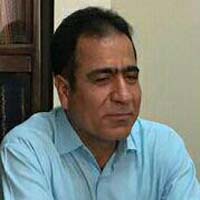Deconstructive analysis of direct instruction components from the perspective of the learning in the flipped classroom..
Transforming the educational environment into a learning environment through combining education with new technologies and changing the role of educational components has been considered by educational thinkers. For this reason, the purpose of this article is to identify the poles of conflict in direct education and to provide strategies for empowering the disadvantaged poles. To achieve this goal, the six staged deconstruction method was used. The findings showed that there are changes in different dimensions of the direct education approach, including: 1- Changing the role of the teacher from a commanding mode and transferring knowledge to a facilitating mode of learning 2- Changing the role of the student from being passive and neglected in the learning cycle, to the active and responsible element in education 3- Changing the teacher-centered teaching method to a student-centered method such as project-based, exploratory, laboratory. 4. Changing the educational content from the monologue mode of the fixed book to the dialog mode and situations based on using the experiences of students, electronic content produced by both sides of the learning flow (teacher and student), social networks and internet sites 5- Changing the educational and physical environment of the classroom from its traditional state to a happy environment with maximum participation of learners in learning process, 5- changing the evaluation from the paper-pencil mode to a combination of different methods such as using electronic and self-assessment methods. These changes indicate a change in the perspective in this regard that the necessary trend to change the education and the emergence of the flipped classroom approach has been provided. Using the features of the flipped classroom, we achieve a new concept of learning to meet the needs of the learners of the digital age.
-
Recognizing the discontinuities from the discourse formations of the Teacher Education System -The establishment of Dar-al Funun School to the establishment of Farhangian University
Alireza Sadeghi, *, Saeed Zarghami Hamrah,
Journal of Socio -Cultural Development Studies, -
A Philosophical Exploration of Dramaturgy as an Educational Approach: Examining Roles and Proposing Improvements for the Teacher Education System
Mohammad Faghedi *, Alireza Mahmmudnia, Ramazan Barkhordari, Yahya Ghaedy
Journal of Technology and Scholarship in Education, -
Designing the Elementary School Science Curriculum based on Bhaskar's Transcendental Realism
Yunes Amirahmadi *, Saeid Zarghami-Hamrah,
Journal of Theory and Practice in Curriculum, -
Truth regimes and factors shaping power-knowledge relations in the discourse formulations of the teacher training from the establishment of Dar al-Funun to the establishment of Farhangian University.
Alireza Sadeghi, *, Saeed Zarghami Hamrah,
Educational Research,



